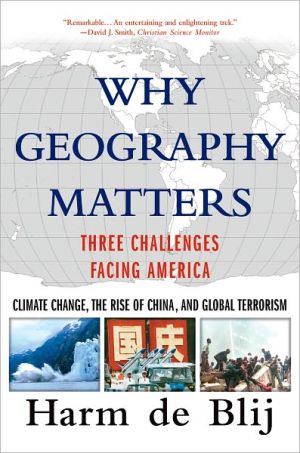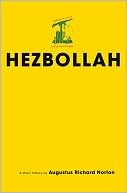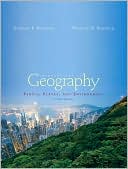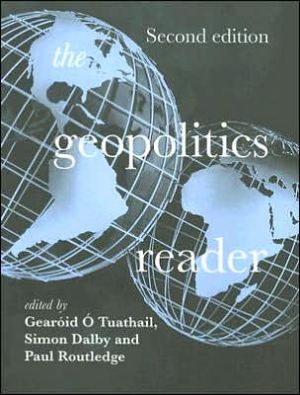The Geography of Bliss: One Grump's Search for the Happiest Places in the World
Part foreign affairs discourse, part humor, and part twisted self-help guide, The Geography of Bliss takes the reader from America to Iceland to India in search of happiness, or, in the crabby author's case, moments of "un-unhappiness." The book uses a beguiling mixture of travel, psychology, science and humor to investigate not what happiness is, but where it is. Are people in Switzerland happier because it is the most democratic country in the world? Do citizens of Qatar, awash in...
Search in google:
Part foreign affairs discourse, part humor, and part twisted self-help guide, The Geography of Bliss takes the reader from America to Iceland to India in search of happiness, or, in the crabby author's case, moments of "un-unhappiness." The book uses a beguiling mixture of travel, psychology, science and humor to investigate not what happiness is, but where it is. Are people in Switzerland happier because it is the most democratic country in the world? Do citizens of Qatar, awash in petrodollars, find joy in all that cash? Is the King of Bhutan a visionary for his initiative to calculate Gross National Happiness? Why is Asheville, North Carolina so damn happy? With engaging wit and surprising insights, Eric Weiner answers those questions and many others, offering travelers of all moods some interesting new ideas for sunnier destinations and dispositions. The Barnes & Noble Review As a foreign correspondent for National Public Radio, Eric Weiner has spent much of his career traveling to some of the world's least happy places -- Iraq and Afghanistan among them. It bummed him out. Undertaking his first book, The Geography of Bliss: One Grump's Search for the Happiest Places in the World, he decided it was time for a change of approach. "What if, I wondered, I spent a year traveling the globe, seeking out not the world's well-trodden trouble spots but, rather, its unheralded happy places?" he writes. "Places that possess, in spades, one or more of the ingredients that we consider essential to the hearty stew of happiness: money, pleasure, spirituality, family, and chocolate, among others." So he set about seeking a variety of Shangri-Las: testing tolerance and Moroccan hashish in the Netherlands; learning to accept loss and relinquish regret in Bhutan; contemplating the lavish wealth and lack of culture (and taxes) in Qatar; marveling at the darkness, drunkenness, and remarkable creativity in Iceland; eschewing introspection and embracing fun in Thailand; looking for contrast in miserable Moldova, "the world's least happy country." Along the way, Weiner gathers insights from many wise and well-traveled people, relates the latest findings in the field of happiness research, and turns enough pleasing phrases to keep even the surliest reader happy. --Amy Reiter
The Geography of Bliss\ \ By Eric Weiner \ Twelve\ Copyright © 2007 Eric Weiner\ All right reserved.\ ISBN: 978-0-446-58026-7 \ \ \ \ Introduction\ My bags were packed and provisions loaded. I was ready for adventure. And so, on a late summer afternoon, I dragged my reluctant friend Drew off to explore new worlds and, I hoped, find some happiness along the way. I've always believed that happiness is just around the corner. The trick is finding the right corner. \ Not long into our journey, Drew grew nervous. He pleaded with me to turn back, but I insisted we press on, propelled by an irresistible curiosity about what lay ahead. Danger? Magic? I needed to know, and to this day I'm convinced I would have reached wherever it was I was trying to reach had the Baltimore County Police not concluded, impulsively I thought at the time, that the shoulder of a major thoroughfare was no place for a couple of five-year-olds.\ Some people acquire the travel bug. Others are born with it. My affliction, if that's what it is, went into remission for many years following my aborted expedition with Drew. It resurfaced after college with renewed fury. I desperately wanted to see the world, preferably on someone else's dime. But how? I had no marketable skills, a stunted sense of morality and a gloomy disposition. I decided to become a journalist.\ As a foreign correspondent for National Public Radio, I traveled to places like Iraq, Afghanistan and Indonesia. Unhappy places. On one level, this made perfect sense. Unconsciously, I was observing the first law of writing: Write about what you know. And so, notebook in hand, tape recorder slung over my shoulder, I roamed the world telling the stories of gloomy, unhappy people. The truth is that unhappy people, living in profoundly unhappy places, make for good stories. They tug at heart strings and inspire pathos.\ They can also be a real bummer.\ What if, I wondered, I spent a year traveling the globe seeking out not the world's well-trodden trouble spots but, rather, its unheralded happy places? Places that possess, in spades, one or more of the ingredients that we consider essential to the hearty stew of happiness: money, pleasure, spirituality, family, chocolate, among others. Around the world, dozens of what-ifs play themselves out every day. What if you lived in a country that was fabulously wealthy and no one paid taxes? What if you lived in a country where failure is an option? What if you lived in a country so democratic you voted eight times a year? What if you lived in a country where excessive thinking is discouraged? Would you be happy then?\ That's exactly what I intended to find out, and the result of this admittedly harebrained experiment is the book you now hold in your hands.\ I was born in the Year of the Smiley Face: 1963. That's when a graphic designer from Worcester, Massachusetts named Harvey Ball invented the now ubiquitous yellow grinning graphic. Originally, Ball's creation was designed to cheer up people who worked at, of all places, an insurance company, but it has since become synonymous with the frothy, quintessentially American brand of happiness.\ Ball's cheery icon never worked its magic on me. I am not a happy person, never have been. As a child, my favorite Winnie-the-Pooh character was Eeyore.\ For most of human history, I would be considered normal. Happiness, in this life, on this Earth, was a prize reserved for the gods and the fortunate few. Today, though, happiness is not only considered possible for anyone to attain, it is expected. Thus I, and millions of others, suffer from the uniquely modern malady that historian Darrin McMahon calls "the unhappiness of not being happy." It is no fun at all.\ And so, like many others, I've worked at it. I never met a self-help book I didn't like. My bookshelf is a towering, teetering monument to existential angst, brimming with books informing me that happiness lies deep inside of me. If I'm not happy, they counsel, then I'm not digging deep enough.\ This axiom of the self-help industrial complex is so deeply ingrained as to be self-evident. There's only one problem: It's not true. Happiness is not inside of us, but out there. Or, to be more precise, the line between out there and in here is not as sharply defined as we think.\ The late Harvard professor Alan Watts, in one of his wonderful lectures on Eastern philosophy, used this analogy: "If I draw a circle, most people, when asked what I have drawn, will say I have drawn a circle or a disc, or a ball. Very few people will say I've drawn a hole in the wall, because most people think of the inside first, rather than thinking of the outside. But actually these two sides go together-you cannot have what is 'in here' unless you have what is 'out there.'"\ In other words, where we are is vital to who we are. By "where," I'm speaking not only of our physical environment but also our cultural environment. Culture is the sea we swim in. So pervasive, so all consuming, that we fail to notice its existence until we step out of it. It matters more than we think.\ With our words, we subconsciously conflate geography and happiness. We speak of searching for happiness, of finding contentment, as if these were locations in an atlas, actual places that we could visit if only we had the proper map and the right navigational skills. Anyone who has taken a vacation to, say, some Caribbean island and had flash through their mind the uninvited thought "I could be happy here" knows what I mean.\ The word lurking just behind the curtain is, of course, that tantalizing, slippery concept known as paradise. It has beguiled us humans for some time now. Plato imagined the Blessed Isles, a place where happiness flowed like the warm Mediterranean waters. Until the 18th century, people believed that Biblical paradise, the Garden of Eden, was a real place. It appeared on maps, located, ironically, at the confluence of the Tigris and Euphrates Rivers in what is now modern-day Iraq.\ European explorers prepared for expeditions in search of paradise by learning Aramaic, the language Jesus spoke. I set out on my journey, my search for paradise, speaking not Aramaic but another obscure language, the modern liturgy of bliss spoken by the new apostles of the emerging science of happiness. I brush up on terms like "positive affect" and "hedonic adaptation." I carry no Bible, just a few Lonely Planet guides and a conviction that, as Henry Miller said, "One's destination is never a place, but a new way of seeing things."\ And so, on a typically steamy day in Miami (itself some people's concept of paradise), I pack my bags and depart my home on what I know full well is a fool's errand, every bit as foolish as the one I tried to pull off as a peripatetic five-year-old. As the author Eric Hoffer put it, "The search for happiness is one of the chief sources of unhappiness." That's okay. I'm already unhappy. I have nothing to lose.\ (Continues...)\ \ \ \ \ Excerpted from The Geography of Bliss by Eric Weiner Copyright © 2007 by Eric Weiner . Excerpted by permission.\ All rights reserved. No part of this excerpt may be reproduced or reprinted without permission in writing from the publisher.\ Excerpts are provided by Dial-A-Book Inc. solely for the personal use of visitors to this web site. \ \
\ From Barnes & NobleBarnes & Noble Discover Great New Writers\ Weiner spent a decade as a foreign correspondent reporting from such discontented locales as Iraq, Afghanistan, and Indonesia. Unhappy people living in profoundly unstable states, he notes, inspire pathos and make for good copy, but not for good karma. So Weiner, admitted grump and self-help book aficionado, undertook a year's research to travel the globe, looking for the "unheralded happy places." The result is this book, equal parts laugh-out-loud funny and philosophical, a journey into both the definition of and the destination for true contentment. Apparently, the happiest places on earth include, somewhat unexpectedly, Iceland, Bhutan, and India. Weiner also visits the country deemed most malcontent, Moldova, and finds real merit in the claim. But the question remains: What makes people happy? Is it the freedom of the West or the myriad restrictions of Singapore? The simple ashrams of India or the glittering shopping malls of Qatar? From the youthful drunkenness of Iceland to the despond of Slough, a sad but resilient town in Heathrow's flight path, Weiner offers wry yet profound observations about the way people relate to circumstance and fate. Both revealing and inspirational, perhaps the best thing about this hilarious trip across four continents is that for the reader, the "geography of bliss" is wherever they happen to find themselves while reading it. (Spring 2008 Selection)\ \ \ \ \ Daniel GilbertIn the last two decades, psychologists and economists have learned a lot about happiness, including who's happy and who isn't. The Dutch are, the Romanians aren't, and Americans are somewhere in between. Eric Weiner—a peripatetic journalist and self-proclaimed grump—wanted to know why. So with science as his compass, he spent a year visiting the world's most and least happy places, and the result is a charming, funny and illuminating travelogue called The Geography of Bliss…One of the ineluctable laws of travel is that most companions are beguiling at the beginning and annoying by the end. Weiner's company wears surprisingly well. It takes a chapter or two to decide you like him, and another to realize that you like him a lot, but by the time the trip is over, you find yourself hoping that you'll hit the road together again someday. The Geography of Bliss is a journey too good to be rare.\ —The Washington Post\ \ \ Pamela PaulWeiner visits not only happy countries but also a couple that fall into the sad camp, as he puzzles out the sources of relative discontent. Chapters follow a trajectory, from initial annoyance ("Damn the efficient, competent Swiss to hell") to grudging appreciation ("Swiss toilets are indeed clean") to outright admiration ("I'm in love. The object of my amour is not a woman or even a person. It is the Swiss rail network"). He adeptly weaves his own discoveries and others' academic conclusions into his travelogue; not once does it feel as if information had been systematically downloaded into a chapter, or narrative threads elaborately woven to make data fit.\ —The New York Times\ \ \ \ \ Publishers WeeklyWeiner's diverting travel memoir tells the tale of a self-professed grump who sets out to find where the most contented people in the world live. The major problem is that the good idea didn't pan out. Weiner visits dozens of countries including India, Iceland and Bhutan, which have their share of socioeconomic problems. Yet Weiner deems these places as having the happiest people in the world, not truly understanding their troubles, but generalizing on the whole. The narration is also a disappointment, with Weiner slip-sliding his way through his own journal writings without passion or enthusiasm and occasional pronunciation problems. Simultaneous release with the Twelve hardcover (Reviews, Oct. 22). (Jan.)\ Copyright © Reed Business Information, a division of Reed Elsevier Inc. All rights reserved.\ \ \ \ \ School Library JournalFortified with Eeyoreish fatalism-"I'm already unhappy. I have nothing to lose"-Weiner set out on a yearlong quest to find the world's "unheralded happy places." Having worked for years as an NPR foreign correspondent, he'd gone to many obscure spots, but usually to report bad news or terrible tragedies. Now he'd travel to countries like Iceland, Bhutan, Qatar, Holland, Switzerland, Thailand and India to try to figure out why residents tell "positive psychology" researchers that they're actually quite happy. At his first stop, Rotterdam's World Database of Happiness, Weiner is confronted with a few inconvenient truths. Contrary to expectations, neither greater social equality nor greater cultural diversity is associated with greater happiness. Iceland and Denmark are very homogeneous, but very happy; Qatar is extremely wealthy, but Weiner, at least, found it rather depressing. He wasn't too fond of the Swiss, either, uncomfortable with their "quiet satisfaction, tinged with just a trace of smugness." In the end, he realized happiness isn't about economics or geography. Maybe it's not even personal so much as "relational." In the end, Weiner's travel tales-eating rotten shark meat in Iceland, smoking hashish in Rotterdam, trying to meditate at an Indian ashram-provide great happiness for his readers. (Jan.)\ Copyright 2007 Reed Business Information\ \ \ \ \ Kirkus ReviewsPart travelogue, part personal-discovery memoir and all sustained delight, this wise, witty ramble reads like Paul Theroux channeling David Sedaris on a particularly good day. Intent on finding the happiest places on Earth and learning what makes them that way, globe-trotting NPR correspondent Weiner discovers some surprises. Money helps, but only to a point; the happiest places tend to be racially homogenous (an unfortunate statistic for multiculturalists); the greatest obstacle to happiness is not poverty or oppression, but envy; breast-enhancement surgery appears to be a good investment, happiness-wise. The author vividly renders happily repressed Switzerland, determinedly tolerant and hedonistic Holland and culturally vibrant Iceland as models of happiness-encouraging environments. (Another surprise: Happiness flourishes in cold climates.) Excursions to Bhutan and India provide a spiritual perspective and underscore the wisdom of low expectations. For contrast, Weiner visits some decidedly unhappy spots: England's dismal Slough ("a showpiece of quiet desperation"); newly rich Qatar, choking on cash but devoid of culture; and miserable Moldova, whose citizens live by an ethos of envy, corruption, vicious self-interest and pleasure in the misfortune of others. The Moldova chapter is the book's funniest-nothing inspires comedy like misfortune and despair. But Weiner writes of the morose Moldovans with affectionate warmth and manages to find something positive to say about the country: The fruits and vegetables are fresh. Americans, despite their wealth and comfort, don't make the top ranks of the world-happiness index-they think too much, work too hard and look for satisfaction inconsumer goods. The author's pronouncements on the nature of happiness are not exactly world-shaking: It depends on cooperative relationships and community; it has spiritual value; it can be attained as a conscious choice. But the author's conclusions are hardly the point-as with all great journeys, getting there is at least half the fun. Fresh and beguiling.\ \ \ \ \ The Barnes & Noble ReviewAs a foreign correspondent for National Public Radio, Eric Weiner has spent much of his career traveling to some of the world's least happy places -- Iraq and Afghanistan among them. It bummed him out. Undertaking his first book, The Geography of Bliss: One Grump's Search for the Happiest Places in the World, he decided it was time for a change of approach. "What if, I wondered, I spent a year traveling the globe, seeking out not the world's well-trodden trouble spots but, rather, its unheralded happy places?" he writes. "Places that possess, in spades, one or more of the ingredients that we consider essential to the hearty stew of happiness: money, pleasure, spirituality, family, and chocolate, among others." So he set about seeking a variety of Shangri-Las: testing tolerance and Moroccan hashish in the Netherlands; learning to accept loss and relinquish regret in Bhutan; contemplating the lavish wealth and lack of culture (and taxes) in Qatar; marveling at the darkness, drunkenness, and remarkable creativity in Iceland; eschewing introspection and embracing fun in Thailand; looking for contrast in miserable Moldova, "the world's least happy country." Along the way, Weiner gathers insights from many wise and well-traveled people, relates the latest findings in the field of happiness research, and turns enough pleasing phrases to keep even the surliest reader...happy. --Amy Reiter\ \






